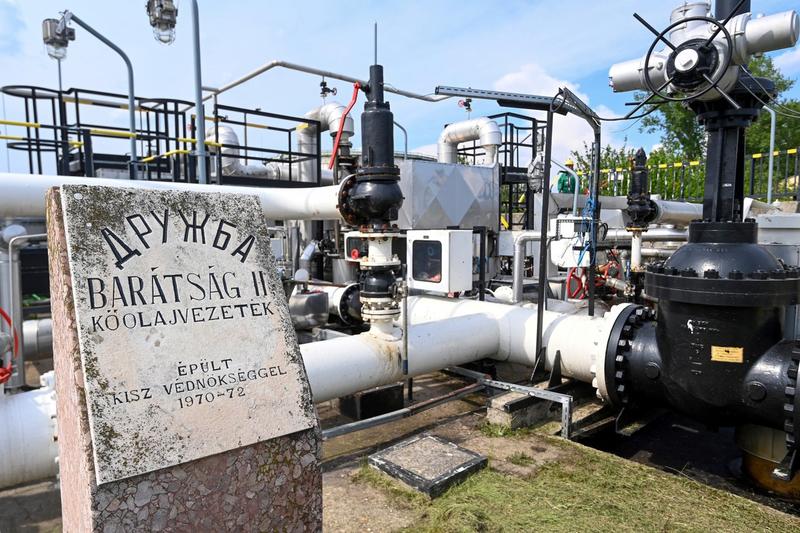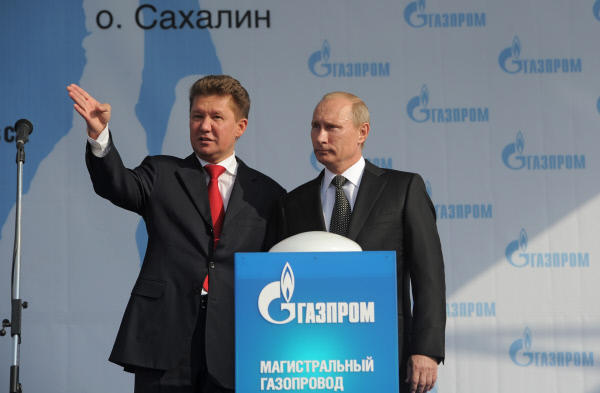
Russia technically entered a recession nearly nine months after the military offensive in Ukraine began, with gross domestic product (GDP) falling 4 percent in the third quarter, according to the first estimate released on Wednesday.
The statistics agency Rosstat released the figures after a second quarter that had already suffered (-4.1%) due to tough Western sanctions imposed in the spring to punish Moscow.
After two negative quarters in a row, Russia is in a state of technical recession according to the commonly used definition. A precedent took place in 2020 – early 2021, which was marked by the Covid-19 pandemic.
Limitation of imports and exports, shortage of personnel, aggravated by military mobilization, difficulties in the supply of spare parts… there are many problems that Russian companies are facing today.
Structurally, the Russian economy is more dependent than ever on hydrocarbons, which previously provided about 40% of federal revenues.
According to Boris Tytov, the representative of the Kremlin for business affairs, almost a third of the 5,800 Russian companies surveyed recently have experienced a drop in revenues in recent months.
And the mobilization of 300,000 reservists, announced on September 21 by Vladimir Putin, affected a third of the companies, according to this survey cited by Kommersant newspaper. This is a significant share, despite the government’s efforts to provide financial support to the companies concerned.
The situation continued to deteriorate, especially in wholesale and retail trade, engineering and metallurgy, Dmytro Polovyi, investment director of Moscow-based Loko Invest, told AFP.
This expert on the Russian economy, like most observers, expected a drop of about 4.5% from July to September.

Russian oil supplied by the Druzhba oil pipeline provides 65% of Hungary’s oil needs. Photo: ATTILA KISBENEDEK / AFP / Profimedia
Reconstruction, but far from apocalyptic predictions
Although activity is declining, Russia has so far withstood the onslaught of sanctions better than expected. The authorities first limited the damage by adopting tight monetary measures and then took advantage of rising prices for hydrocarbons, especially oil, which is easier to export.
Entrepreneurs have also improvised to source by circumventing sanctions by passing through third countries.
According to the Russian Central Bank forecast of November 8, GDP should shrink by about -3.5% throughout 2022, which is a far cry from the doomsday forecasts seen in the spring.
Good employment rates
According to statistics agency Rosstat, the country is still officially at full employment, and the unemployment rate was 3.9 percent in September.
Having raised the key interest rate to 20% after the first sanctions, the Central Bank of Russia (CBRF) has set it at 7.5% since mid-September and does not plan to change it until the end of the year.
This measure is a sign of the ongoing “restructuring” of the Russian economy, according to Elvira Nabioullina, head of the Central Bank of Ukraine.
“And not all sectors are affected by Western sanctions in the same way,” Valery Mironov, an economist at the renowned Higher School of Economics (HSE), told AFP.
Russian tech giants VK and Yandex, for example, announced a significant increase in turnover in the third quarter: the departure of many foreign competitors and the ban by the Russian authorities on the main American social networks allowed them to strengthen their position in the national market.

Gazprom, a state-owned company at the behest of Putin. Photo: Gazprom.
“Sanctions are very strong”
Inflation was 12.63% year-on-year in September, having been declining for several months, according to data published in early October by Rosstat.
But, judging by everything, the fourth quarter promises to be the most difficult. “GDP may fall even more, to 7%,” Dmytro Polovyi predicts.
“Obviously, there are already problems, but in fact we can see how their consequences are being carried over to 2023,” Valery Mironov notes.
“Sanctions are very strong,” Nabiullina said on November 8. According to her, “one cannot underestimate their influence on the Russian and world economy.”
On the same topic:
- Putin calls for curbs on car prices as Russian car sales fall to record lows
Ashley Bailey is a talented author and journalist known for her writing on trending topics. Currently working at 247 news reel, she brings readers fresh perspectives on current issues. With her well-researched and thought-provoking articles, she captures the zeitgeist and stays ahead of the latest trends. Ashley’s writing is a must-read for anyone interested in staying up-to-date with the latest developments.